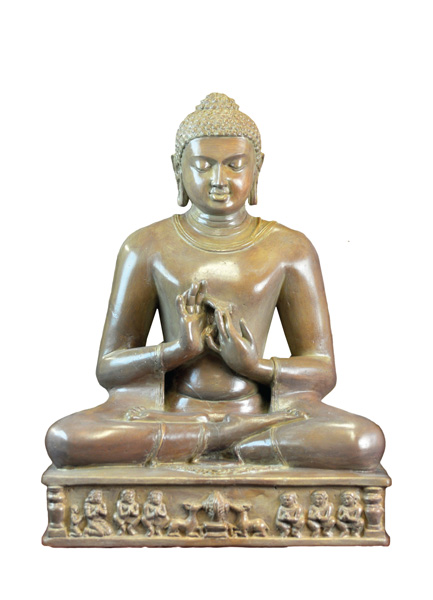This adjustment to your life style may produce more benefit than any other aspect of a Buddhist life, for instance, more than an intensive daily meditation practice. Though little mentioned in the early discourses, in the modern context this is huge.
Modern culture was devastated by two parallel developments in the twentieth century that working together have magnified the power of government and corporations to shape the popular culture in harmful directions: mass media and the public relations/marketing industry. Supplementing print media at the turn of the century came radio, moving pictures and the gramophone, television, video games and home video, and all of the various forms of access and intrusion explosively afforded by the Internet. On the foundation of modern psychology around the turn of the century, which discovered the irrational underbelly of human motivation, came the public relations industry, successfully wielded in the interests of mass government propaganda in the United States to sell US involvement in World War One and in Germany to elicit support for the Nazi Party and its plans, all the while selling everywhere increasing numbers of the products of ever expanding industrial production. Today, children spend more time each day wired to the devises of mass media than they spend in school, certainly far more than they spend in interaction with their parents, and for parents, often of less leisure, it is not much better.
I call these developments devastating because they have overwhelmed the highest values and ideals of civilization and of the religious life, things like frugality and restraint, intellectual curiosity and kindness, to create efficient producers, consumers and supporters of the current corporate/state agenda. The means by which this has been done is particularly alarming from a Buddhist perspective, because of its unconscionable appeal to the basest human impulses of greed, hatred and delusion. Consumers of entertainment witness thousands of violent deaths each year and are vulnerable to tens of thousands of ads promoting junk food, unnecessary gadgets, useless cures and means of self-gratification and self-enhancement, all the while being sucked into a ruthlessly competitive and intolerant world in which they learn that violence is solution to every difficulty and stuff and wealth are the means of salvation. What is more, this system of mass manipulation is motivated itself primarily by greed for profits – Bitter seeds produce bitter fruits. – and overwhelms the quiet voices of wisdom and compassion – parents, village elders, the wise, teachers, clergy and monastics – that under other circumstances would be expected to uphold the purest values and ideals of the culture.
It is incumbent on all who wish to live a Buddhist life to live apart from these toxic influences of mass marketing/public relations. Here are some suggestions to adopt in whole or in part:
- Never watch or read an ad. If you are watching TV and an ad comes on, mute the volume until the danger has passed. If an ad pops up on your computer hit the “back” button, quick. Be ready to take cover under a large cushion if all else fails.
- Don’t own a TV, or if you do, use it very sparingly to watch commercial-free programs.
- If you are a sports fan, go to games personally in your community, support the local high-school team, rather than catching professional sports between ads on TV.
- Find reliable non-commercial news sources on the Internet (commercial sources are rarely reliable in any case). Find real journalism rather than hate- or greed inspired punditry.
- View movies and other shows of social, spiritual or intellectual merit. Avoid mindless shows, such as those that convey celebrity gossip. Ask, does this entertainment option endorse anger or violence or class-consciousness, or does it promote kindness, open-mindedness, non-violence? What are its values? You will find at least 90% of the options lacking, but there are uplifting options out there. Documentaries are often good options.
The challenges of this regime are that most of us have media addictions and routines. Certain TV personalities become like personal friends or family, certain sports stars the same. We also expend a lot of time in front of the screen, often accustomed and deserved downtime, and the alternative ways of killing that time are less familiar or less enticing, alternatives like reading, conversation, star-gazing, macramé or board games. Also, adopting this regime generally requires the cooperation of family members or roommates. But, hey, we make sacrifices to maintain a consistent meditation practice as well.

Leave a Reply